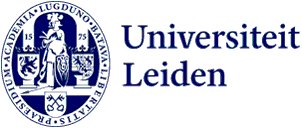10 search results for “astrophysics” in the Public website
-
Ice and Gas in Protostellar Clouds and Planet-forming Disks
This thesis takes steps toward understanding the interaction between gas-phase and solid-state molecules in star- and planet-forming regions.
-
The gravitational billion body problem
Promotor: Prof.dr. S. Portegies Zwart
-
‘We’re a spaceship with limited supplies’
From the discovery of exoplanets to the hunt for extraterrestrial life. At the Astronomy Gala on 17 December in the concert hall in Leiden, astronomers looked back, but above all ahead. With King Willem-Alexander as guest of honour.
-
Astronomy in corona times: 'All the big telescopes were at a standstill.'
Astronomer Ignas Snellen studies exoplanets using telescope observations. But how is that possible when all the big telescopes are more or less at a standstill? Luckily, he has contact from home with a robot telescope in Mexico and his WIFI is finally working well.
-
Celestial worlds and comet hysteria in Van Dishoeck exhibition
A moon rock from the Apollo 17 mission, antique globes and the cosmos according to Wassily Kandinsky. Ewine van Dishoeck, Professor of Molecular Astrophysics, has put together an impressive exhibition at Rijksmuseum Boerhaave.
-
Ingredients of the planet-formation puzzle
High-angular-resolution observations of the circumstellar material have uncovered numerous and very diverse substructures in protoplanetary discs, raising the question of whether they are caused by forming planets or other mechanisms.
-
Physics Nobel Prize for former Leiden Lorentz Professor
The 2017 Nobel Prize in Physics has been awarded to Rainer Weiss, Barry Barish and Kip Thorne for their work on the measurement of gravitational waves. Thorne was Lorentz Professor in 2009 in Leiden. Physicist Jan Willem van Holten explains why this is such an important discovery. ‘A new branch of astrophysics…
-
Huib van Langevelde new director Event Horizon Telescope
The Leiden astronomer Huib van Langevelde) has been selected as the new director of the Event Horizon Telescope (EHT). The EHT is a collaboration involving about 350 scientists from 18 countries. It combines the ALMA array in Chile with sub-millimeter telescopes around the world and published the first…
-
Spinoza Prize for astrophysicist Ignas Snellen
With his clever measuring methods Ignas Snellen – together with his team – was the first to detect carbon monoxide in the atmosphere of exoplanets. For his pioneering work the Leiden astrophysicist has been awarded the Spinoza Prize, the highest academic honour in the Netherlands. The prize of 2.5 million…
-
A matter of dark matter
Is our universe built up out of warm or cold dark matter? The standard model assumes cold dark matter particles, but astronomer Sylvia Ploeckinger is now testing the possibility of a warm counterpart: sterile neutrino’s. For this project, she received an NWO Physics/F grant, a special grant for women…
